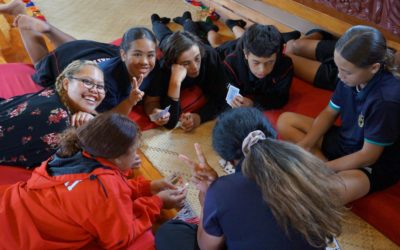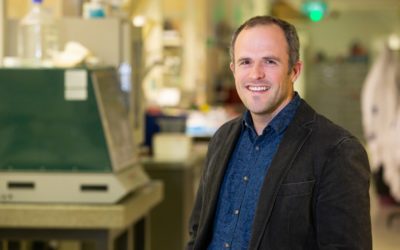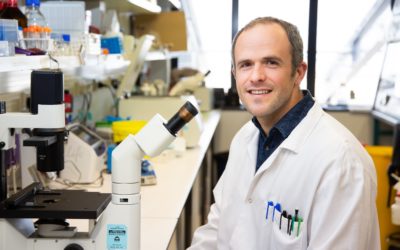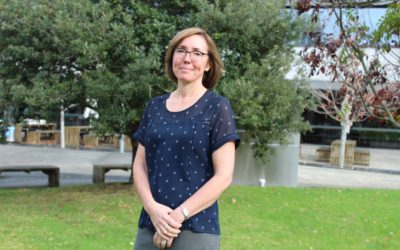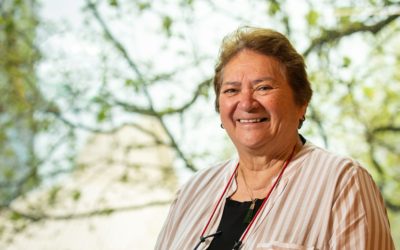The Brain Research New Zealand (BRNZ) outreach calendar is full of exciting events, with one of the highlights being our annual wānanga with our Māori community partners. We have been visiting and working with the tauira (students) and kaiako (teachers) of Te Kura...
Our Research
The link between Covid and Parkinson’s
Dr Victor Dieriks examines concerns that the rapid onset of Parkinson's disease motor symptoms after Covid-19 infection suggests a causal link. Since the start of this pandemic, neuroscientists have become increasingly concerned that Covid-19 could result in...
Stalling Parkinson’s disease is Auckland scientist’s goal
What if doctors could stall Parkinson's before the shakiness started? That's the ambition of a University of Auckland scientist. Brain Research New Zealand member Dr Victor Dieriks, of the Centre for Brain Research in the Faculty of Medical and Health Sciences, just...
Most New Zealanders don’t know how deadly strokes are – claiming 2,300 lives a year and rising
Written by Associate Professor Rita Krishnamurthi Stroke is the third highest cause of death in New Zealand, after cancer and coronary heart disease. But our new research shows very few people are aware of the risk, particularly in Pasifika...
Assoc Prof Joanna Williams: The clues in our blood
Associate Prof Joanna Williams’ work at the University of Otago is all about blood – and the clues hidden within that might tell us what is going on in the brain. Using the blood as a window into the brain, Joanna aims to find biomarkers that can help us diagnose...
Te Kura Kaupapa Māori o Hoani Waititi Marae and Brain Research New Zealand | Matariki Awards
It has become an annual tradition for Brain Research New Zealand to sponsor the Health and Science Award of Māori TV's annual Ngaā Whetū o Matariki Awards. For this occassion, Māori TV has produced a video piece showcasing the relationship of BRNZ and our Māori...
Isaac Samuels: How equal is access to stroke reperfusion therapy?
“As a young Māori health professional in training, it is crucial to me that I do everything I can, whenever I can, to ensure I am providing for my communities all across Aotearoa.” As a fourth-year medical student at the University of Auckland, Isaac Samuels (Tainui)...
Assoc Prof Ping Liu: Detecting Alzheimer’s through targeted metabolomics
Assoc Prof Ping Liu has been researching L-arginine, a highly versatile semi-essential amino acid, for almost 20 years – and it doesn’t sound like she’ll get tired of it anytime soon. L-arginine is widely present in our bodies, including our brains. What makes...
Dr Hinemoa Elder on Women in Science Leadership
Te rerenga o Hui Te Rangiora: Following in the footsteps of Hui Te Rangiora. Homeward Bound, Women in Science Leadership, Antarctica Dr Hinemoa Elder (Ngāti Kuri, Te Aupouri, Te Rarawa and Ngāpuhi) is the first indigenous alumna of the Homeward Bound project, a...
Prof Valery Feigin: Neurological disorders are the leading cause of global disability
BRNZ Principal Investigator Prof Valery Feigin, Director of AUT's National Institute for Stroke and Applied Neurosciences, is New Zealand's most cited scientist and a world-leading stroke researcher. For the occasion of World Brain Day 2020, Valery was interviewed by...
Prof Cathy Stinear: Seven tips to keep your mind sharp
Your brain is the most precious and complex organ in your body, and it makes you who you are. Unlike some of your other vital organs, it can’t be repaired or replaced if it becomes diseased or wears out. Fortunately, writes Professor Cathy Stinear, there are things...
Empowering Māori to fight dementia
Even though Māori are diagnosed with dementia much younger than non-Māori, and it is predicted that they will make up 8% of New Zealanders living with dementia by2038, little is known about how this disease affects Māori. Most research is still conducted through a...
